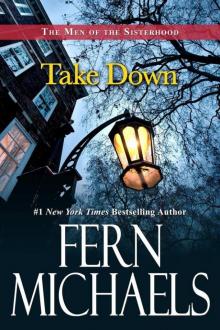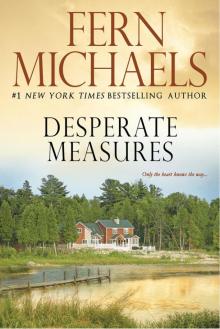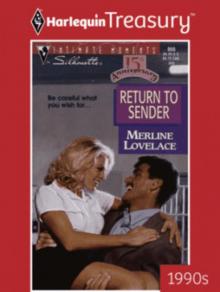- Home
- Fern Michaels
Southern Comfort
Southern Comfort Read online
Books by Fern Michaels:
Southern Comfort
To Taste the Wine
Sins of the Flesh
Sins of Omission
Return to Sender
Mr. and Miss Anonymous
Up Close and Personal
Fool Me Once
Picture Perfect
About Face
The Future Scrolls
Kentucky Sunrise
Kentucky Heat
Kentucky Rich
Plain Jane
Charming Lily
What You Wish For
The Guest List
Listen to Your Heart
Celebration
Yesterday
Finders Keepers
Annie’s Rainbow
Sara’s Song
Vegas Sunrise
Vegas Heat
Vegas Rich
Whitefire
Wish List
Dear Emily
The Godmothers Series:
Late Edition
Exclusive
The Scoop
The Sisterhood Novels:
Home Free
Déjà Vu
Cross Roads
Game Over
Deadly Deals
Vanishing Act
Razor Sharp
Under the Radar
Final Justice
Collateral Damage
Fast Track
Hokus Pokus
Hide and Seek
Free Fall
Lethal Justice
Sweet Revenge
The Jury
Vendetta
Payback
Weekend Warriors
Anthologies:
Holiday Magic
Snow Angels
Silver Bells
Comfort and Joy
Sugar and Spice
Let It Snow
A Gift of Joy
Five Golden Rings
Deck the Halls
Jingle All the Way
FERN MICHAELS
Southern Comfort
KENSINGTON PUBLISHING CORP.
http://www.kensingtonbooks.com
All copyrighted material within is Attributor Protected.
Table of Contents
Books by Fern Michaels:
Title Page
Prologue
Chapter 1
Chapter 2
Chapter 3
Chapter 4
Chapter 5
Chapter 6
Chapter 7
Chapter 8
Chapter 9
Chapter 10
Chapter 11
Chapter 12
Chapter 13
Chapter 14
Chapter 15
Chapter 16
Chapter 17
Chapter 18
Chapter 19
Chapter 20
Chapter 21
Chapter 22
Chapter 23
Chapter 24
Epilogue
Copyright Page
Prologue
Atlanta, Georgia
March 2002
Detective Patrick Kelly, Tick to his friends, signed out of his precinct and headed to his car, an eight-year-old Saturn with 120,000 miles on it. It purred like a baby when he turned the key. Then it sputtered and died. He’d given it too much gas and flooded the engine. He knew the drill—wait five minutes, try again, and if he was lucky, Lulu would get him home.
Sally, his wife, had named his car Lulu but never told him why. She’d just giggle and say it was a lulu of a car. Sally drove a ten-year-old Honda Civic. The only good thing about owning two old cars was not having to make car payments. Everything was about cutting corners, saving for college for the kids, and doing without.
Tick sighed, leaned back against the headrest, but didn’t close his eyes because, if he did, he’d go to sleep. He’d worked a double shift because Joe Rollins had a ruptured appendix, and he’d filled in for him. He couldn’t wait to get home to Sally and the kids, take a shower, maybe eat something Sally kept warm for him, and go to sleep with her spooning into his back. When he felt his eyelids start to droop, he turned the key, and, miracle of miracles, Lulu turned over. He was on his way to his family, whom he loved more than anything on earth. He loved them more than he loved his job, and he dearly loved his job. There were days when he hated the job, but the love always won out. He truly believed he made a difference. Where his family was concerned, there was no doubt: He loved them twenty-four/seven, unconditionally.
When he worked the late shift, he always let his thoughts go to his wonderful little family as a way of unwinding on his way home. He’d met Sally in the seventh grade, when she transferred from out of state. He fell in love with her that day when she stood in front of the class, and said, “My name is Sally Pritchard and I’m new today.” He’d seen the sparkle of tears in her eyes and knew instinctively that she was afraid. Afraid the kids wouldn’t like her, afraid she’d make a mistake, and they’d laugh. He never did figure out where or how he’d known that, he’d just known it. Then, when he found out she had moved one street over from his own street, and they would be walking to school at the same time, he’d almost done cartwheels. Later, Sally said she didn’t fall in love with him till they were in the eighth grade. He’d been heartbroken at that news but covered it up well. She loved him, and that was all that mattered.
Married for fifteen years now, and he loved her as much as he did that day in the seventh grade when she introduced herself. He hoped and prayed nightly that his two children would find mates as wonderful as their mother when it was their time.
Sally Pritchard Kelly was the wind beneath his wings. She was the reason he got up in the morning, the reason he was still sane considering the fact that he was a homicide detective. Because of Sally and the kids, he didn’t carry his work home with him. When he walked in the front door of his mortgaged-to-the-hilt house, he was in another world. Worn, comfortable furniture waited for him. Sally always waited at the door for him, a smile on her face and smelling of a summer day. Always. He couldn’t remember a single day in all the years they were married that she hadn’t greeted him with a smile and a kiss on the lips. A real kiss that said she loved him, missed him, and now things were the way they should be because he was home. There would always be a warm meal in the oven if he was late. Didn’t matter how late he was. Sally would curl up on the couch and wait. Sally was the constant in his life.
Prettier than a picture, he always said. He loved the freckles that danced across her nose, loved the crooked eyetooth she refused to have straightened. There wasn’t one thing he didn’t love about his wife because, in his eyes, she was perfect. At this point in his reverie, even if he was so tired he couldn’t think straight, his eyes always misted up. He’d just curl up and die if anything ever happened to his beloved Sally. Well, that wasn’t going to happen anytime soon; they had at least another fifty years to look forward to. Both he and Sally came from families where longevity was the rule.
Tick could feel his eyes start to droop again, so he pressed the stereo unit and turned up the volume. His and Sally’s favorite song was burned on every inch of the CD, so he could play it over and over. “Mustang Sally.” He started to sing along with Wilson Pickett at the top of his lungs, “Ride, Sally, ride!”
He was two streets away from where he lived on David Court when he saw the strobe lights shooting upward to the sky. Blue, red, and white just like it was the Fourth of July. But it wasn’t the Fourth of July. He knew what the lights meant. Good cop that he was, he knew he was going to have to stop to offer any assistance if needed. Sally, the kids, and sleep would have to wait just a bit longer. He turned off the CD player and turned the corner, and his world came to a scr
eeching halt. He saw the barricade, the yellow tape, the crazy arcing lights, the crowds of people, and too many police cars to count.
All parked in front of his house, in the driveway, on the lawn and sidewalk. He slammed on the brakes, threw open the door, and lunged forward. He heard his name being called from all directions, arms trying to reach him, someone trying to tackle him. He plowed ahead, driven by an energy he didn’t know he possessed. And then he was in a vise grip, unable to move. The more he fought and struggled, the tighter the hold became. He looked up to see the face of the man holding him and was stunned to see his captain, tears rolling down his cheeks. “Easy, Tick, easy.”
Tick ground his teeth together. He had to show respect to the captain. “Did someone rob my house? Where are Sally and the kids? Captain, I asked you a question.”
“Tick . . . I . . .”
Rising onto his toes, Tick reared upward, loosening the hold his captain had on his arm. He sprinted forward as fellow officers rushed to prevent him from entering the house. He evaded all of them.
The house was deathly silent. The crime-scene personnel took that moment to stop what they were doing and stare at the man who looked like the wrath of God. “Where are they?”
Someone, he didn’t know who it was, pointed to the second floor. Tick took the steps two at a time. It looked to him like there were a hundred people in his small upstairs. He bolted down the short hall to his bedroom. In his life he’d never seen so much blood. He saw her then, his beloved Sally, lying in the doorway leading to the bathroom. He knew it was her because of her nightgown and robe. And her wedding ring. There was little left to her face. How could that be gone? Those beautiful freckles dancing across her pert little nose were gone. Her throat was a gaping hole. Tick’s knees buckled. Strong hands held him upright. “Ride, Sally, ride,” he blubbered.
“Get him out of here. Have the ME look at him.”
“Where are the kids?”
“Not now, Tick. Please,” his captain said.
“Where are my kids?” Tick roared.
“In their room. Tick, please, let us handle this. I’m begging you, don’t go there.”
“Get the hell away from me . . .”
Tick found them huddled together in the closet, which was full of toys and balls. There was blood everywhere. Too much blood for two tiny little creatures who once carried his life’s blood. Now it was a river on a hopscotch-patterned carpet. He wanted to bend down, to scoop up his children, to hold them close, but they wouldn’t let him. He wanted to run his hands through his daughter’s curly hair, which was just like her mother’s, but it was matted with blood, and he couldn’t see the curls. He looked at his son and fainted dead away. He felt himself being carried someplace, heard voices he couldn’t identify, then he felt something prick his arm. Ride, Sally, riiiide.
The Governor’s Mansion
Tallahassee, Florida
August 2009
Thurman Lawrence Tyler checked himself in the mirror one last time. He adjusted his Hermès tie, examined the crease on the French cuffs of his custom-made shirt, brushed an imaginary piece of lint from his imported Italian suit, inspected the shine on his shoes, and smoothed a thick white errant hair in place before stepping into the foyer, where Elizabeth waited. At six foot one, he had an athletic build and sharp blue eyes that rarely missed a beat, and she thought her husband still as handsome as the day she had met him. Maybe even more so.
“Thurman, dear, you look as handsome as you did the day of our wedding.” Elizabeth Tyler, his wife of forty-six years and right hand of Governor Thurman Lawrence Tyler, looked every bit the elegant wife of a dignitary. Perfectly coiffed blond hair, her grandmother’s pearl earrings and necklace glowing next to her porcelain skin. A pale blue Chanel suit brought out the cornflower blue of her eyes. Both were tall, slim, and in excellent physical condition, and they appeared almost perfect as they scrutinized one another.
“And you, my dear, look like the innocent that you were.” Thurman studied his wife for a moment longer. She’d aged extremely well, unlike many of her friends. Elizabeth was always careful to protect herself from Florida’s punishing sun, never smoked, and rarely drank anything more than an occasional glass of white wine. She played tennis three times a week, had a facial once a week and her hair touched up every third Thursday of the month. Of course, he wasn’t supposed to know this, so he pretended her blond locks were as natural as those of a newborn.
“You’re too kind,” she replied.
“Nonsense,” he responded.
Without another word, he escorted her to the elaborate dining room where they had their breakfast. Each consumed two cups of coffee, his with skim milk and hers black. Both had one-half of a Florida ruby red grapefruit with one slice of homemade dry wheat toast. After they’d consumed their meal, they took their daily doses of vitamins with a bottle of mineral water imported from Switzerland.
Their morning routine was like clockwork and had been since Thurman was elected governor of the fine state of Florida almost eight years ago. With his second term coming to an end, both were preparing for the next step of their career—president of the United States. Yes, it was their career because Thurman never made a decision without first consulting his dear wife.
When they finished their meal, the governor went to his office, and Elizabeth went to hers, where she spent the morning going over the menu for an upcoming gala they were hosting. With nothing more on her agenda, she went to the personal living area that connected their offices. Knowing her husband would be occupied for the rest of the day with his lieutenant governor, she placed a phone call to her son, Lawrence. Hanging up after several rings went unanswered, Elizabeth called an old high school friend. They made plans to have lunch soon. Free time was rare, and she decided to take advantage of it and relax with a book. She’d spent her life promoting literacy and was very involved with the public-library system, but never once in all her years of reading had she told anyone of her love of horror novels. Today she planned to read Stephen King’s latest.
Settling into a Queen Anne chair next to the window overlooking the garden, Elizabeth spent the next two hours immersed in her novel. Later, when she heard Thurman shouting on the phone to Carlton, she hid her book beneath the chair’s cushion and hurried to the door, where she stood silently, listening to her husband’s private conversation.
She and Thurman had done everything in their power to see that Lawrence never found out. It would ruin him and his father if the public got wind of this. Elizabeth thought she had done the right thing by keeping him. No, she had done the right thing. He was her son, the only child she would ever have. Whatever it took to ensure that he wasn’t ruined by her and Thurman’s past mistakes, Elizabeth would do it. After all, she was his mother, and if he couldn’t count on her, then poor Lawrence had no one.
Every hope and dream they had ever imagined was about to be destroyed. They had worked too long and hard for this moment. Elizabeth refused to allow anyone to ruin the future that was just now within their reach.
She’d made numerous sacrifices throughout her life in order for Thurman and Lawrence to be successful. Now that someone threatened her life’s work, she wanted to fight back in anger; but that had never been her way, and she would not start now.
She went to her private office and sat down. She removed a sheet of creamy personalized paper from her desk. Lawrence would have to know this someday. If neither she nor Thurman were around to tell him, then a letter would suffice.
My Dearest Son,
If you’re reading this letter then you must know that your father and I are no longer of this earth. There is something I have wanted to tell you since you were a little boy, but the time was never right. Then as you got older I thought it would be a disservice not to tell you, yet I could never find the right time. If you hate me or your father after reading this, know that I will understand and love you in spite of it. The first time I laid eyes on your father, I fell madly in love
. . .
Chapter 1
The 1,203 residents of Mango Key never knew what to call it or how to refer to it. For the most part, in the beginning, they called it a castle, then they switched up and called it a fortress. As it neared completion, they became puzzled at the high brick wall and the massive iron gates that sparked if they were touched and simply referred to it as that place at the end of the island.
The residents didn’t know who lived in that place, but they speculated that maybe it was some aging film star who didn’t want anyone to see their lost looks. Or perhaps it was some drug lord trying to hide out from the law since the only activity seen or heard came late at night.
The residents of Mango Key were simple folks and earned their living selling their mangoes, oranges, and grapefruit to the boats that came into the Key once a week, and they didn’t really care about the phantom people who maybe lived or maybe didn’t live in that place. They had never seen a soul in the light of day since that place had been completed five years ago. For the most part, they forgot that it was even there because it didn’t affect them in any way.
In truth, there were 1,204 residents of Mango Key, but the additional resident wasn’t a native, so the residents more or less ignored Patrick Kelly the same way they ignored that place. But that hadn’t been the case when he had first arrived on Mango Key.
Even Patrick Kelly, known to old friends as Tick, although those friends were long gone, ignored the place, which was three miles down the beach from where he lived.
The reason he’d ignored the construction was because he was in a drunken stupor for the two years it took to build, and the third year, he was just more or less coming out of his stupor. And the least of his worries was someone building a house, a castle, a fortress, or that place. It simply held no interest for him; it was all he could do to get through one day so that he could go to sleep, wake, and struggle through the next. Today, seven years after the fact, he still had no interest in what he considered an abandoned structure he happened to see when he walked the beach, swam, or fished.

 Safe and Sound
Safe and Sound Santa Cruise
Santa Cruise Deep Harbor
Deep Harbor Truth and Justice
Truth and Justice Far and Away
Far and Away The Christmas Stocking
The Christmas Stocking 18. Cross Roads
18. Cross Roads Texas Sunrise
Texas Sunrise Take Down (The Men of the Sisterhood)
Take Down (The Men of the Sisterhood) Sleigh Bells
Sleigh Bells A Golden Tree
A Golden Tree About Face
About Face To Taste The Wine
To Taste The Wine Texas Rich
Texas Rich 15. Vanishing Act
15. Vanishing Act To Have and to Hold
To Have and to Hold Eyes Only
Eyes Only Fearless
Fearless 5. Sweet Revenge
5. Sweet Revenge A Season to Celebrate
A Season to Celebrate Cut and Run
Cut and Run 8. Hide and Seek
8. Hide and Seek A Snowy Little Christmas
A Snowy Little Christmas Hidden
Hidden Sins of the Flesh
Sins of the Flesh 3. Vendetta
3. Vendetta Desperate Measures
Desperate Measures No Way Out
No Way Out Late Edition
Late Edition 11. Collateral Damage
11. Collateral Damage Texas Heat
Texas Heat Forget Me Not
Forget Me Not 4. The Jury
4. The Jury 16. Deadly Deals
16. Deadly Deals Plain Jane
Plain Jane Crown Jewel
Crown Jewel Sweet Vengeance
Sweet Vengeance 19. Deja Vu
19. Deja Vu Point Blank
Point Blank Truth or Dare
Truth or Dare Family Blessings (Cisco Family)
Family Blessings (Cisco Family) Classified
Classified The Blossom Sisters
The Blossom Sisters Spirited Away
Spirited Away Wishes for Christmas
Wishes for Christmas What You Wish For
What You Wish For Fancy Dancer
Fancy Dancer 14. Razor Sharp
14. Razor Sharp I'll Be Home for Christmas
I'll Be Home for Christmas Vegas Sunrise
Vegas Sunrise Trading Places
Trading Places Charming Lily
Charming Lily Cross Roads
Cross Roads Balancing Act
Balancing Act Cinders to Satin
Cinders to Satin A Family Affair
A Family Affair A Winter Wonderland
A Winter Wonderland 17. Game Over
17. Game Over Hokus Pokus (The Sisterhood: Rules of the Game, Book 2)
Hokus Pokus (The Sisterhood: Rules of the Game, Book 2) Picture Perfect
Picture Perfect Dear Emily
Dear Emily 9. Hokus Pokus
9. Hokus Pokus Cross Roads - Sisterhood book 18
Cross Roads - Sisterhood book 18 Blindsided
Blindsided Fast Track
Fast Track Hey, Good Looking
Hey, Good Looking Kentucky Heat
Kentucky Heat Yesterday
Yesterday Weekend Warriors
Weekend Warriors Coming Home for Christmas
Coming Home for Christmas Vanishing Act
Vanishing Act Gotcha!
Gotcha! Home Free
Home Free Fast Track (The Sisterhood: Rules of the Game, Book 3)
Fast Track (The Sisterhood: Rules of the Game, Book 3) Holly and Ivy
Holly and Ivy Fool Me Once
Fool Me Once The Most Wonderful Time
The Most Wonderful Time Exclusive
Exclusive Jingle All the Way
Jingle All the Way Vendetta
Vendetta Kentucky Rich
Kentucky Rich Lethal Justice
Lethal Justice The Future Scrolls
The Future Scrolls Deja Vu
Deja Vu Getaway
Getaway Mistletoe Magic
Mistletoe Magic Seasons of Her Life
Seasons of Her Life When the Snow Falls
When the Snow Falls Breaking News
Breaking News 2. Payback
2. Payback Under the Radar
Under the Radar Serendipity
Serendipity High Stakes
High Stakes Need to Know
Need to Know Captive Innocence
Captive Innocence Countdown
Countdown Return to Sender
Return to Sender Fast and Loose
Fast and Loose Sara's Song
Sara's Song Razor Sharp
Razor Sharp 6. Lethal Justice
6. Lethal Justice Hokus Pokus
Hokus Pokus 13. Under the Radar
13. Under the Radar 7. Free Fall
7. Free Fall Collateral Damage
Collateral Damage Whitefire
Whitefire Upside Down
Upside Down Southern Comfort
Southern Comfort Celebration
Celebration 1. Weekend Warriors
1. Weekend Warriors 10. Fast Track
10. Fast Track Making Spirits Bright
Making Spirits Bright Silver Bells
Silver Bells Holiday Magic
Holiday Magic Christmas At Timberwoods
Christmas At Timberwoods Captive Embraces
Captive Embraces Winter Wishes
Winter Wishes Listen To Your Heart
Listen To Your Heart Kentucky Sunrise
Kentucky Sunrise Tuesday's Child
Tuesday's Child Final Justice
Final Justice Free Fall
Free Fall No Safe Secret
No Safe Secret Deadly Deals
Deadly Deals Wish List
Wish List Pretty Woman
Pretty Woman Payback
Payback Mr. And Miss Anonymous
Mr. And Miss Anonymous The Scoop
The Scoop In Plain Sight
In Plain Sight The Nosy Neighbor
The Nosy Neighbor Final Justice: Sisterhood Series #5
Final Justice: Sisterhood Series #5 Sins of Omission
Sins of Omission The Jury
The Jury Captive Secrets
Captive Secrets Hide and Seek (The Sisterhood: Rules of the Game, Book 1)
Hide and Seek (The Sisterhood: Rules of the Game, Book 1) Crash And Burn
Crash And Burn Sweet Revenge
Sweet Revenge Secret Santa
Secret Santa 20. Home Free
20. Home Free Game Over
Game Over For All Their Lives
For All Their Lives 12. Final Justice
12. Final Justice Hideaway
Hideaway Perfect Match
Perfect Match